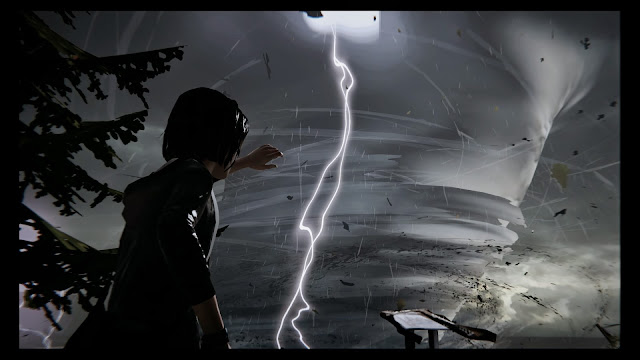List by Lindsay M.
It’s hard to believe, but we’re at the end of a decade this month, and it should go without saying that a lot has happened in video games over that last ten years. Just think: at the start of the decade people were playing Nintendo Wii, PlayStation 3, Xbox 360, PSP and Nintendo DS. There’s been two new generations of consoles in that time, and one new Sony and Microsoft device. In addition, in that time VR made a comeback, and streaming games has just started to get steam. DDNet started as a humble little blog right at the end of 2010, and it’s been fascinating to watch the site evolve and change as the industry.
To celebrate this huge transition, from one decade to the next, we’ve decided to get the team to share their most noteworthy games of the decade – the games that they found most memorable, or had the biggest impact on them. We’ll publish these at a rate of one per day, and today it’s DDNet’s news editor, Lindsay’s turn!
This decade has been an interesting one for video games and I. I felt very unplugged for the first half, barely knowing what was being released past the big names. But then, in 2015, I joined DigitallyDownloaded.net. Not only was I plugged into the video game scene again, I felt connected to it. When I sat down to write this list, I realized that maybe I wasn’t as unplugged as I once thought, with several items being launched from 2010-2014.
So here is my top ten games of the decade, listed chronologically
Fantasy Life (2012)
Fantasy Life is the only game on this list exclusively due to the time I spent with it. An RPG-simulation title, it’s set in the world of Reveria. The player is asked to investigate strange occurrences, but really the bulk of my time was spent levelling up my character through various jobs. A sequel was revealed, but ended up turning into Fantasy Life Online. I’d love to see a proper Fantasy Life sequel on the Nintendo Switch.
Papers, Please (2013)
In real life, I’m a writer; in Papers, Please, I am a border inspector for the fictional dystopian county of Arktotska. It’s the border inspector’s job to make sure everyone’s documents are in order when they want to enter the country. It’s easy at first. Then emotions get involved, and money, and it all gets very complicated. Papers, Please is a fine example of video games as an art form, not only for its visual aesthetic but also due to its narrative. Lucas Pope would back this up with Obra Dinn, showing that as far as indie auteurs go, he’s rightfully one of the most prominent and respected.
Mini Metro (2014)
Mini Metro is beautiful in its simplicity. The goal is simple: connect train stations together so the city’s population can move around. In practice, it can get very complicated. Stations are represented by various shapes, and lines are differentiated through colour, making each map turn into its own work of art. Matt S. reviewed the game upon its release, giving it four on five stars and praising it for its simple execution. Since the PC release, it’s come to mobile devices, in my mind the perfect platform for the Kiwi-developed game.
This War of Mine (2014)
This War of Mine is not your typical game of war. There’s no fast-paced multiplayer battles with combat men pew pewing one another. Instead, there are stories about civilians trapped in the city, unable to leave and desperately trying to survive. Through several scenarios, you’ll encounter various elements, from cold winter weather to people breaking in and ransacking your home. The impact and quality of the game is is perhaps summarised best in our review: “The dark, grim aesthetic, coupled with the haunting music and subtle behaviours of the people, all combine to tell a story that works.”
Life Is Strange (2015)
I honestly don’t know where to begin about Life Is Strange. From its character-driven narrative, to the time travelling element, to the music, to the relationships both created and destroyed, Life Is Strange is as close to perfection as a game can get. Matt S. agreed with me in his review of the first episode, saying the only fault was having to wait for the next. It was released episodically, but it’s been years since all episodes were available so if you’ve missed it, now is your chance. Life Is Strange 2 is also now available in its entirety, following two brothers as they flee America heading to Mexico. It, too, is very good, but nothing will likely have the sheer impact of that first game as a narrative storytelling experience.
Her Story (2015)
I bet that when I talk about Her Story, my eyes go all glazed over and happy and then I sigh heavily. One of my early reviews for DDNet, Her Story was my introduction to FMV games; since then, I’ve become rather obsessed. In the game, you take on the role of a detective. There’s no storyline; rather, you search through video archives using specific terms to try and find the information you need. Who is this woman? Why is she being interrogated? Is she guilty? I’m not going to ruin the jaw-dropping surprise, so you’ll have to play to find out! This year, a spiritual successor to Her Story was released, titled Telling Lies; I also highly recommend it.
Beyond Eyes (2015)
Beyond Eyes is a beautiful title, both emotionally and aesthetically. Follow a young girl who has lost her eyesight as she seeks a lost cat. The entire world is blank until she interacts with something; sometimes audio clues are the only way to know what’s in front of you. The graphics are gorgeous, looking as though watercolour paints are being applied to paper. Technically, it’s a walking sim, but it also drives home the reality that to blind people, every day life is a challenge all into itself.
Reigns (2016)
Reigns takes the motions of Tinder (you know, the dating app) and meshes it with narrative and gameplay, creating an innovative experience. I originally played and reviewed it for PC, but mobile is definitely the way you want to play this title. You’re the king, and it’s up to you to make every decision about how to run your country. Do you favour the people, or the military? Are you balancing everyone’s different needs? Are you putting your country and risk? Oh, and Reigns does it all with a special, unique, and unforgettable sort of humour.
What Remains of Edith Finch (2017)
The Finch home is an interesting one, patchworked together by many generations of the family. What Remains of Edith Finch is about discovering stories of the past to learn about the present. Edith is the last in her family, who is cursed to have one member per generation die in a strange way. She learns about the past through the bedrooms of the deceased. The story is extremely touching, and I definitely shed a tear or two while playing. Britta reviewed the game for DDnet, noting, “What Edith Finch has achieved on a whole new level is an overarching brilliance and consistency of both theme and gameplay, in how the two seamlessly intertwine and feed off each other.”
The Infectious Madness of Doctor Dekker (2017)
Anyone who follows my work knows of my love for The Infectious Madness of Doctor Dekker, an FMV game by D’Avekki Studios with a very Lovecraftian twist. You’re a psychiatrist, replacing the deceased Dr. Dekker in his very own office and seeing his patients. It’s a murder mystery, so you’ll be asking each patient a lot of questions about their relationship with the doctor. The game is, in retrospect, a near-flawless example of the FMV genre; I wish I had have rated it more than four stars in my review. D’Avekki has since put out The Shapeshifting Detective, another murder mystery FMV, and also well worth your time.
– Lindsay M.
News Editor












